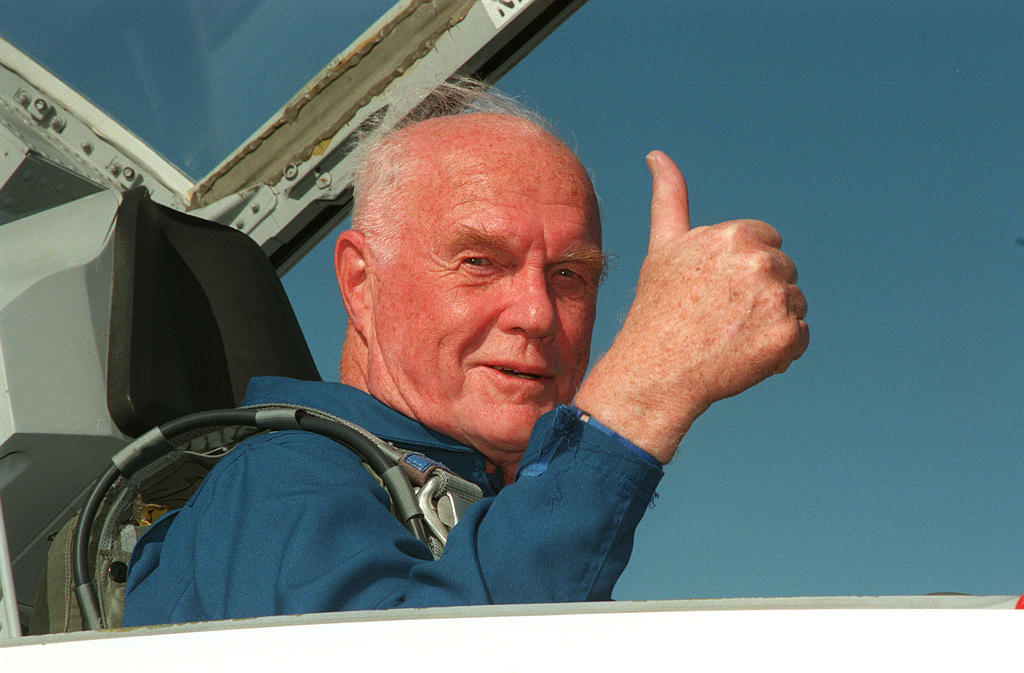Astronaut John Glenn dies at 95
First American in orbit, decorated pilot, senator
 Glenn was among a very small number of American aerospace pioneers whose feats made them household names for generations, comparable in that regard to Charles A. Lindbergh, or the Wright brothers. His Friendship 7 mission on February 20, 1962, lasted five hours, but its impact inspired millions.
Glenn was among a very small number of American aerospace pioneers whose feats made them household names for generations, comparable in that regard to Charles A. Lindbergh, or the Wright brothers. His Friendship 7 mission on February 20, 1962, lasted five hours, but its impact inspired millions.
“No flier since Lindbergh had received such a cheering welcome,” The New York Times reported in an obituary. “Bands played. People cried with relief and joy. Mr. Glenn was invited to the White House by President John F. Kennedy and paraded up Broadway and across the land. A joint meeting of Congress stood and applauded vigorously as Mr. Glenn spoke at the Capitol.”
Glenn was already a decorated war hero by the time, at age 40, he climbed aboard the tiny capsule that would hurtle him into history. He took flying lessons while studying chemistry at Muskingum College in his Ohio hometown. After the December 7, 1941, attack on Pearl Harbor, he signed up for the Naval Aviation Cadet Training Program and would later join the Marine Corps. He flew 59 combat missions in the Pacific, earning two Distinguished Flying Crosses and other decorations. Glenn flew another 90 combat missions (and earned more decorations) during the Korean War, and later served as a test pilot. Another of Glenn’s firsts was piloting the first supersonic, transcontinental flight in 1957.
Glenn resisted being called a hero. “I figure I’m the same person who grew up in New Concord, Ohio, and went off through the years to participate in a lot of events of importance,” Glenn said. “What got a lot of attention, I think, was the tenuous times we thought we were living in back in the Cold War. I don’t think it was about me. All this would have happened to anyone who happened to be selected for that flight.”
Glenn would continue his distinguished career in private industry and public office, representing Ohio in the U.S. Senate from 1974 through 1999. Toward the end of his tenure in Congress, he had one last space shot, on October 29, 1998. Glenn, then 77, was aboard the space shuttle Discovery as it launched from Cape Canaveral before cheering crowds.
Glenn is survived by his wife of 73 years, Anna, whom he always called “Annie”; two children; and two grandsons.
A pilot through and through, Glenn was an AOPA member who flew his Beechcraft Baron until very late in life. In 2012, shortly before the fiftieth anniversary of Friendship 7, a New York Times reporter interviewed the then-90-year-old Glenn and found the retired senator and astronaut with a sharp, clear mind, even regretting he had sold the airplane the month before. Glenn made very clear to that reporter that his pilot certificate remained valid.
Email [email protected]



